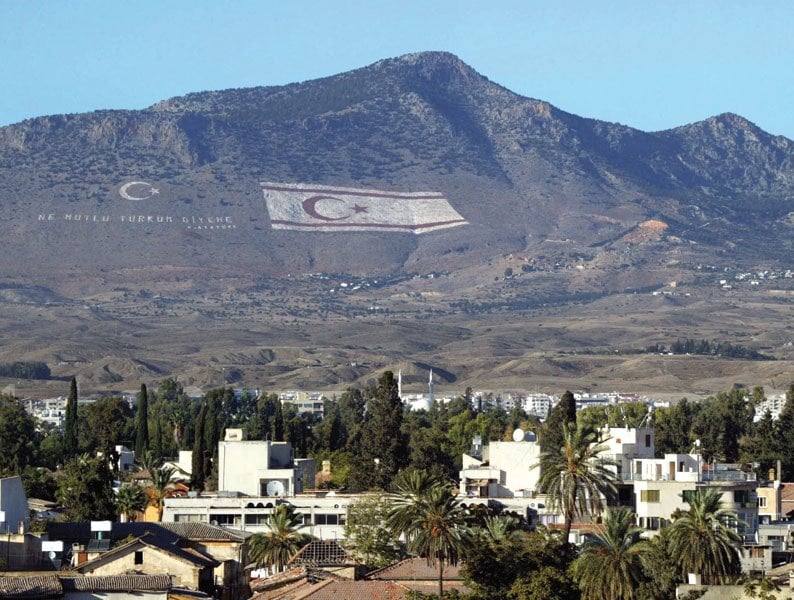

A court in Cyprus sentenced on Friday two Hungarian women for their role in promoting the sale of properties located in the Turkish-occupied northern part of the island.
This decision is about the sensitive issue of property rights in Cyprus, following the Turkish invasion of 1974. The two women, identified as a retired beautician and a hairdresser, received prison terms of two and a half years and 15 months respectively. Their sentences came after they admitted guilt to charges of advertising and securing buyers for homes built on land that was seized from Greek Cypriots during the 1974 illegal invasion of Turkey into Cyprus.
The properties of this judicial case are located near the villages of Kalogrea and Agios Ambrosios, within the Kyrenia district that is currently under de-facto Turkish control. These homes were built without the consent or involvement of the original Greek Cypriots who owned the land. The two Hungarian nationals used social media posts to advertise and sell these properties, essentially acting as agents for a local Turkish Cypriot company. This helped them earn commissions by conducting illegal sales of stolen land. Their decision to plead guilty made the Cypriot prosecutors to drop further charges. The two Hungarians admitted culpability in illegal appropriation of Greek Cypriot property in the north of the island.
This verdict, handed down by a court in the internationally recognized Republic of Cyprus, is widely anticipated to exacerbate existing tensions with Turkish Cypriots and Turkey at a time when efforts are ongoing to restart stalled peace negotiations. In recent years, Greek Cypriot authorities have been increasingly proactive in pursuing legal action against foreign nationals who become involved in these disputed property transactions, with at least two more similar cases currently underway.
To truly understand how important this issue is, one needs to look back at what happened in 1974. In that year, a coup d’état was backed by the collapsing Greek military junta. The perpetrators wanted to unilaterally unite Cyprus with Greece. Turkey used this opportunity and responded with a military intervention, claiming that Ankara had a duty to do that due to its role as a guarantor power and the need to protect the Turkish Cypriot minority on the island. This military invasion resulted in the illegal occupation of roughly 36% of Cyprus’s northern part, leading to thousands of deaths, missing persons and the displacement of approximately 170,000 Greek Cypriots from their homes and land.
In 1983, the northern territory declared itself independent with the name ”the Turkish Republic of Northern Cyprus (TRNC).” This is a ”state” that is recognized solely by Turkey and no other country in the world. The Greek Cypriot owners who were displaced from the north were never permitted to return to their properties, and their land was subsequently redistributed, often to Turkish Cypriots or Turkish settlers who migrated from mainland Turkey. The United Nations established a buffer zone, known as the “Green Line,” to physically divide the island and avoid tensions. Despite numerous attempts at peace talks over the years, Cyprus remains a divided island, with the issues of property rights and the fate of those who were displaced remaining central.
International legal bodies, including the European Court of Justice, have consistently upheld the rights of displaced Greek Cypriots to their properties in the north, frequently issuing warnings to potential buyers about the inherent legal risks. However, in the absence of a comprehensive political solution and the continuation of the occupation, these kinds of disputes – and the resulting legal actions – are likely to continue as long as the island remains geographically and politically divided.
Related: The Story of a Family’s Escape During Turkey’s Invasion of Cyprus
